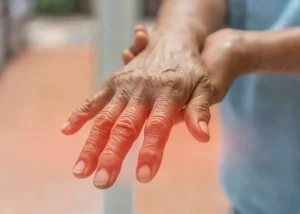Emotional regulation is a key component of healing from a spiritual malady. Mental healthcare professionals guide patients through evidence-based strategies like cognitive-behavioral therapies (CBT) and dialectical behavior therapy (DBT) to manage negative thoughts, emotions, and behaviors. CBT helps individuals identify negative thinking patterns and consciously reframe them into positive ones. On the other hand, DBT equips people to regulate their emotions by learning mindfulness practices along with communication skills that help navigate interpersonal relationships. This spiritual malady, or spiritual disconnection, is the driving force behind our addiction and self-destructive behaviors. Without addressing this spiritual malady, we have absolutely no hope for intrinsic change or recovery.
Big Book Sponsorship Store
- This process helps individuals develop a strong sense of self-awareness, empathy, and compassion towards others.
- Addicts are selfish and self-centered by nature, despairingly focusing on their own depravity of connectedness.
- Fieldwork on the first of three yearly waves of follow-up data collection began in the spring of 2004; the questions addressed here will be re-examined using a longitudinal design.
- According to AA, spiritual malady is often fueled by resentments and renders life unmanageable.
- The fact is, we have a spiritual problem, and the only cure is God.
Overcoming the stigma placed on professional assistance could mean significant strides towards achieving long-term spiritual wellness. According to research conducted by Dr. Stephen Post at Stony Brook University, volunteering regularly can lead to enhanced physical health, improved cognitive functioning, and even longer life spans. So in addition to providing aid for those in need, offering assistance can bring positive benefits into our own lives as well. In addition to emotional support, aiding others in taking practical steps towards healing and recovery is also vital. Suggesting resources such as support groups or professional counseling services can go a long way in helping someone get the care they need. This area on ways to conquer spiritual malady proposes several solutions.
thoughts on “The Spiritual Malady”
This study was conducted in New York City and recruited primarily inner-city, ethnic/racial minority members whose primary substances were crack and heroin. The associations investigated here should be examined again among diverse samples of participants to determine whether when the spiritual malady is overcome present findings are generalizable. Finally, using single items to assess stress and quality of life may be viewed as a limitation; we selected these measurements because we were interested in participants’ overall subjective assessment of stress and life satisfaction.
Contact Your First Step’s National Hotline
As overwhelming as I’m sure this all may seem for someone who’s either never had a spiritual connection, or been disconnected for years, I’d like to assure you it’s not as formidable as it may seem. But first, it’s crucial that you understand the difference between a spiritual experience and a religious one. While I could go on forever on the differences between these two ideas, I’ll keep it as simple as possible. Although the idea of the spiritual malady came to me through reading about Alcoholics Anonymous, I believe it is a concept any person can connect with whether or not they suffer from addiction. The solution to spiritual malady offered by Alcoholics Anonymous is to affect a spiritual awakening – in essence a psychic shift or attitude adjustment. In The Big Book of AA, the 12 steps outlined are a formalized approach to achieving this transformational change.
Seeking Professional Help
Observed variables, represented as boxes in the SEM figures discussed in the Results section (Figures 2 and and3),3), are measurable (e.g., a scale score). Unobserved or latent variables are represented by an oval in the SEM figures. Resolve to accept the judgments of your confessor or therapist over your own distorted standards.
Pope Francis Names 2 Officials of the Dicastery for the Doctrine of the Faith as Bishops
We are born into a society that values materials and finances above most other things. Success has been defined as individual achievements rather than considering the overall prosperity of humankind. This selfishness is taken to extremes when the person in question is a drug addict or alcoholic. A compilation of significant spiritual experiences, to an individual, can induce a spiritual awakening.
Structural Equation Modeling4
Studies have shown that those who give of themselves for the betterment of others tend to experience increased happiness and fulfillment in their own lives. By assisting others, we not only help them to overcome their spiritual maladies, but we also benefit from the act of service ourselves. Train your brain to think positively rather than dwelling on negative thoughts.
- The importance of general social support and domain-specific support (recovery support) in buffering stress and enhancing QOL emphasizes the need for recovering persons to establish a social network of persons who can provide encouragement, acceptance, and a sense of belonging.
- Several researchers have noted that the process of recovery is often precipitated by a combination of avoidance-oriented and approach-oriented goals (Walters, 2000; also see Granfield & Cloud, 2001).
- The overall sensation can feel like crawling out of your own skin.
- If you are a ‘real’ alcoholic or addict and if only a ‘spiritual experience’ will conquer your affliction, then is not important to know what a spiritual experience is, how to achieve it, and and most importantly, how to recognize it when you have it.
Two of the reasons frequently cited by alcohol and other drug users for seeking recovery are negative consequences of drug use (past consequences and fear of future consequences) and “wanting a better life” (e.g., Laudet, Savage, & Mahmood, 2002; also see Burman, 1997). Several researchers have noted that the process of recovery is often precipitated by a combination of avoidance-oriented and approach-oriented goals (Walters, 2000; also see Granfield & Cloud, 2001). Although there has been little research in this area, what empirical evidence there is suggests that quality of life among active drug users is very poor and that stress levels are high. The road of recovery is both the path to and the promise of a better life. Recovery is a continuous, lifelong process and a difficult path for most (Flynn, Joe, Broome, Simpson, & Brown, 2003; Margolis, Kilpatrick, & Mooney, 2000).
As much as it depends on us, we need to live at peace with our families. If that just isn’t possible, or if you don’t feel safe there, let Celebrate Recovery be your family. Not just emotionally, but invite us over for Christmas, cook us a nice meal. But seriously, that’s the kind of deep relationships you can build here in CR; as deep as family. Well, if you’ve been in Celebrate Recovery or any 12-step program for a while you know that, for most people who are actively working the steps, over time the mental obsession dissipates. I remember my wife Deb coming home from her first Overeater’s Anonymous meeting.
- When you ask them to describe what they mean by that statement, they seem to have a firm grasp on the fact that we alcoholics suffer from “an allergy of the body and an obsession of the mind” — that once I put any alcohol in my system whatsoever it sets off a craving for more alcohol.
- It also helps to establish meaningful connections with others, and fosters a sense of compassion, empathy, and spiritual growth.
- Religiousness and spirituality are generally conceptualized as overlapping but distinguishable constructs that share some characteristics but retain non-shared featured (e.g., Miller & Thoresen, 2003; Zinbauer, Pargament, Cole, Rye, Butter, Belavich et al., 1997).
- A spiritual connection with someone can help make the journey to overcome the malady more comfortable and facilitate the healing process.
- Many of us say that we have the right to do whatever we want to our own bodies.
Comments are closed.





